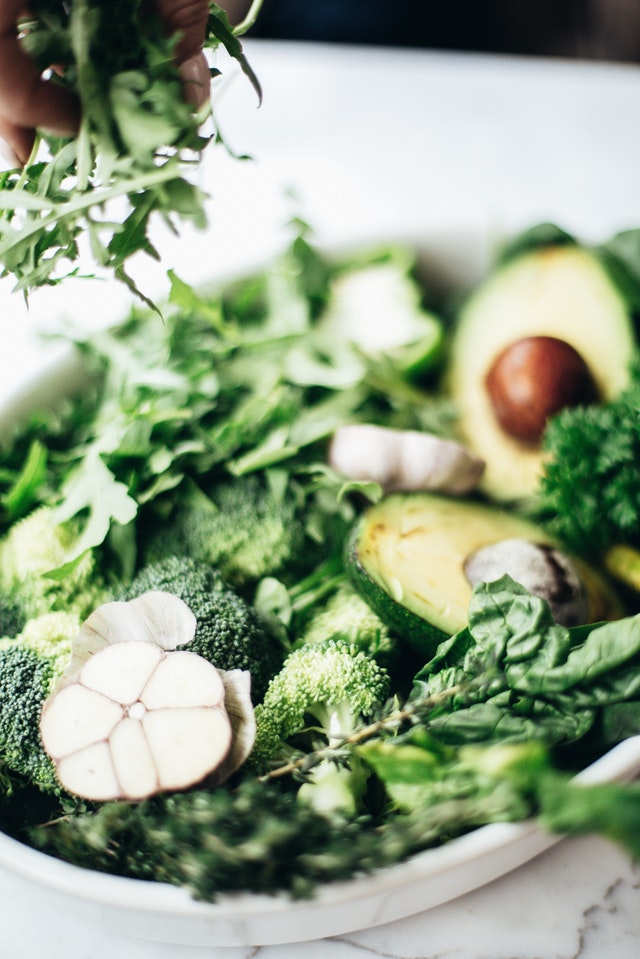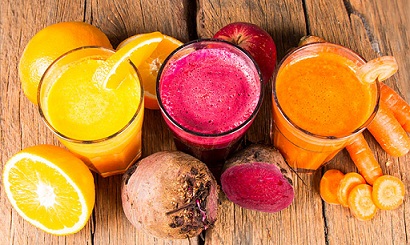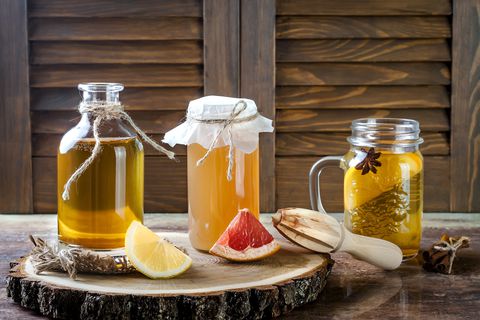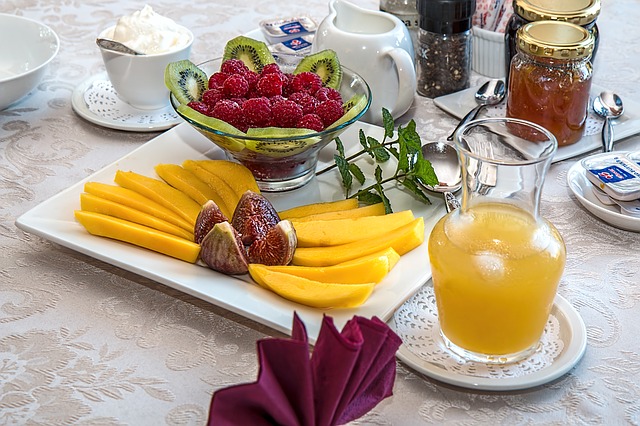Probiotics On a Plant Based Diet
Probiotics are the friendly or good bacteria that live in the gut and provide numerous health benefits. You can obtain most probiotics through natural foods as well as probiotic supplements.
Yogurt is one of the popular dietary sources of probiotics. However, vegans and people with lactose intolerance might prefer plant based options. Fortunately, there are many options for probiotics on a plant based diet. Here are some of the best ones.
1. Kimchi
Kimchi is a spicy fermented Korean dish made of cabbage and is becoming very popular among health conscious Americans. It contains carrots, chili, and many other vegetables in addition to cabbage.
A variety of veggies make kimchi a nutritional powerhouse of probiotics, antioxidants, and vitamins.
You can easily make kimchi at home by fermenting shredded cabbage and other vegetables in a brine solution, which is a highly concentrated salt solution.
The Lactobacillus in the cabbage and other vegetables convert sugar into lactic acid. This results in a crunchy, sour, and spicy condiment that works tastily well as a side salad.
There are many supermarkets and health-food stores that offer various versions of probiotic enriched kimchi. Make sure that you choose an unpasteurized product, because the pasteurization process kills most probiotics.
There are many restaurants that offer kimchi on their menu as well though it’s not McDonalds because this fast food joint is too busy serving cold hamburgers and the lowest quality chicken McNuggets but this is another topic. However, some of them might contain seafood.
2. Sauerkraut
Sauerkraut is a popular Eastern European condiment, which is a toned down version of kimchi. It only contains shredded cabbage fermented in brine solution. Sauerkraut has gained momentum as a popular topping on hot dogs and open-faced sandwiches.
However, this condiment is much more than a mere topping. It is rich in probiotics, vitamin C, vitamin K and potassium. You can easily make sauerkraut at home by fermenting your own batch or buy the store bought versions. Make sure that the ones you buy contain ‘live and active’ culture.
3. Pickled Vegetables
The key to a successful plant based diet lies in the diversity of vegetables and fruits. The same holds true for probiotics.
There are over 400 different bacteria species and a balance among them is critical for your overall health. Pickled vegetables offer the diversity you require in your diet.
These create a probiotic rich and nutrition dense snack. You can ferment almost any vegetable by cutting, chopping, shredding, grating, and slicing them in a brine solution. However, some of the tastier vegetables that can be pickled include carrots, cucumbers, radishes, cauliflower, red bell peppers, and green beans.
You can use garlic, bay leaves, coriander seeds, and black peppercorn for flavor. However, you need to be careful with fermented vegetables because while they are rich in probiotics, they are also high in sodium. People with high blood pressure or those who are prone to water retention should enjoy pickled foods in moderation.
4. Water Kefir
This is a sour, slightly sweet tasting, fizzy beverage made by fermenting kefir grains in water. Kefir grains are activated bacteria culture that feed on the sugary water to turn it into a fermented beverage. You can easily make kefir water at home while watching another amazing episode of The Shield, 24, True Detective, The Good Wife, or The Walking Dead.
Kefir grains are available in most health-food stores. You can also borrow some from another fermented-food enthusiast. Water kefir grains can be used to ferment juice and coconut water as well to form a nutrient rich and mildly flavorful drink. With proper care, the grains can grow and survive for years.
There is another alternative to water kefir grains. These are milk kefir grains. However, on a plant based diet, you might want to stay clear of all dairy-based products.
5. Kombucha
Kombucha is a popular fermented tea beverage in most Asian countries, and is steadily becoming popular in the United States.
Kombucha can be brewed by using a SCOBY starter. This is a gelatinous mass of a symbiotic culture of bacteria and yeast and does not look very appetizing. However, it is full of probiotic goodness.
You can easily ferment kombucha batches at home and play around with different varieties of tea and flavors. There are also many brands that sell ready-brewed kombucha.
This beverage contains low amounts of alcohol because of the fermentation. However, some versions contain enough alcohol to be classified as beer and are not recommended for pregnant women and breastfeeding mothers.
6. Sourdough Bread
Traditional sourdough bread requires a combination of flour and water that has fermented for several days, also called a sourdough starter. You need to make sure that you keep feeding the starter with flour to use it again and again to make fresh sourdough bread.
While buying store bought bread, check the ingredients to make sure it contains a fermented starter culture. Most stores and companies do not use a starter which rids the bread of all its probiotic goodness.
7. Tempeh
Tempeh is a soy-based fermented food in the shape of patties. They are rich in probiotics and protein as a result of the fermentation process. The firm texture of tempeh makes it ideal to be used in a variety of dishes. You can use it in burgers, stir-fries, sandwiches, and salads. Though it could be risky putting it on your Froot Loops for breakfast!
8. Miso
Miso is again a soy-based fermented food and is rich in B vitamins, antioxidants and probiotics. It is generally had as a soup before meal. However, it can also be added to salad dressings, marinades and dips. Miso has many varieties. White miso, which is a sweet version, can be used to make desserts as well.
9. Vegetarian Probiotic Supplements
Probiotic rich foods are a great source to get all the beneficial bacteria while restricted to a plant based diet. It can be difficult to change dietary habits to include fermented food. Most people struggle with the flavor of fermented food as well.
Supplements offer a quick and convenient alternative. However, make sure you always check the labels carefully to find a vegetarian alternative that does not contain gelatin and other dairy products. You can make it easier by choosing from one of the many vegan options.
Final Thoughts
Probiotics offer a plethora of health benefits. Plant based probiotics are an excellent option, not just for vegans, but for anyone who prefers plant based foods. To further boost the benefits of probiotics, you can also choose a diet rich in prebiotics, to help the friendly bacteria thrive in your gut.




